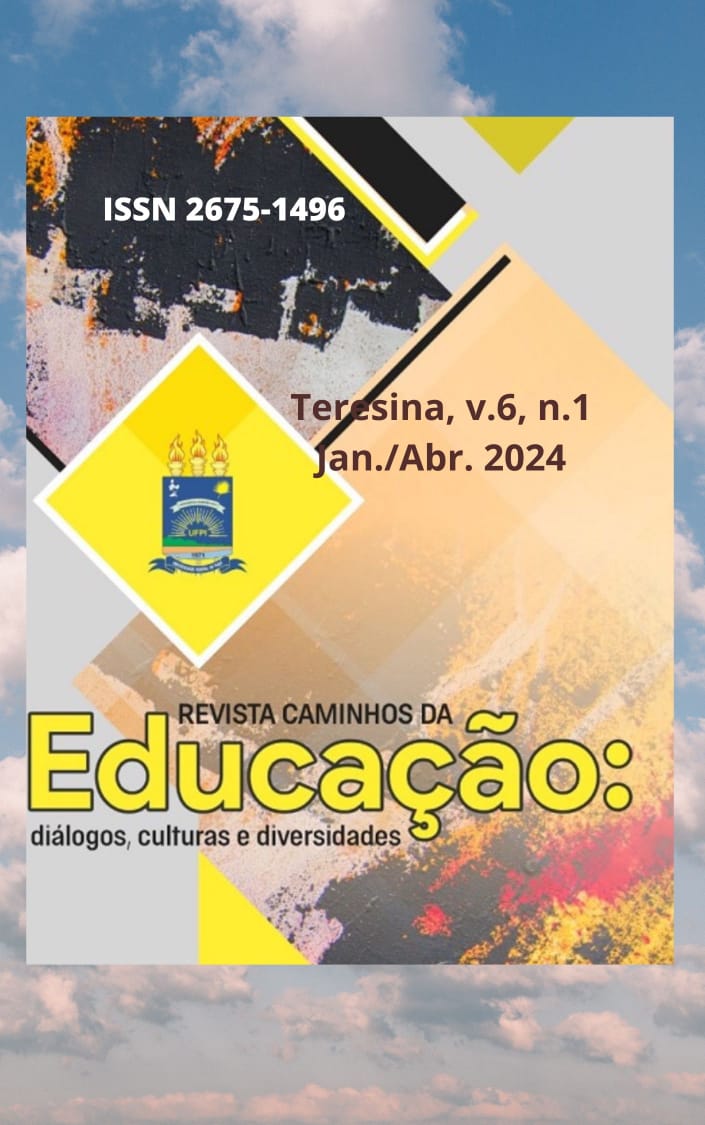FERRAMENTAS DE SUPORTE AOS GESTORES NO ENSINO SUPERIOR
DOI:
https://doi.org/10.26694/caedu.v6i1.4906Keywords:
Ensino Superior , Planejamento Estratégico, Gestão de ConhecimentosAbstract
This article presents a study of strategic planning systems: SWOT analysis, Balanced Scorecard and knowledge management as facilitating devices for managers who manage a Higher Education Institution. The objective is to analyze the systems used by managers in their HEIs, as a device for strategic planning. The research was based on a qualitative study, with a questionnaire being applied to 100 managers of Higher Education Institutions in Brazil (Colleges, Universities Centers and Universities), with closed and open questions. The research contains 10 descriptors; however, in this article we will present an analysis of 02 descriptors, namely: What devices or systems are used for strategic planning in your HEI; and, the use of knowledge management as a facilitating tool in management. We will analyze some narratives of these managers in a qualitative way, since when they answered the questionnaire; they descriptively positioned themselves on the closed questions. Here, we will use some excerpts that approach the theme discussed here. Data collection took place from August/2017 to March/2018. The study subjects were managers of private Higher Education Institutions, namely: deans, directors, pro-deans, institutional attorneys and course coordinators. The data presented will be analyzed from the narratives of the investigated subjects and discussed in the light of the literature. It is concluded that SWOT, analysis, balanced scorecard ad knowledge management are systems that for decision-making in the daily lives of their institution.
Downloads
References
BROWN, John. Pesquisa que reinventa a corporação. In: Gestão do Conhecimento: On Knowledge management. Harvard Business Review; Rio de Janeiro: Campus, 2000, p.145 e 147.
CHIAVENATO, Idalberto. Novos paradigmas: como as mudanças estão mexendo com as empresas. São Paulo: Atlas, 1996.
CRAWFORD, Richard. Na era do capital humano. São Paulo: Atlas,1994.
DAVENPORT, T. & H., PRUSAK, L. Conhecimento Empresarial: como as organizações gerenciam seu capital intelectual. Rio de Janeiro: Campus, 2001. p. 77.
DRUCKER, Peter. O Advento da nova organização. In: Gestão do Conhecimento: On Knowledge management. Harvard Business Rreview; Rio de Janeiro: Campus, 2000.
GARVIN, David. Construção da organização que aprende. In: Gestão do Conhecimento: On Knowledge management. Harvard Business Rreview; Rio de Janeiro: Campus, 2006.
LEITE, F. Gestão do conhecimento científico no contexto acadêmico: proposta de um modelo conceitual. Master's degree dissertation, Information Science, Universidade de Brasília. 2006.
MATOS, Francisco Gomes. Empresa que pensa. São Paulo: Makron Books, 2006.
MATTAR, F. Pesquisa de marketing. São Paulo: Atlas. 1996.
MAXIMIANO, Antonio. Introdução à administração. São Paulo: Atlas, 2007.
MINAYO, Maria Cecília de Souza (org.). Pesquisa Social. Teoria, método e criatividade. 18 ed. Petrópolis: Vozes, 2001, p.63.
NONAKA, Ikujiro. A empresa criadora de conhecimento. In: Gestão do Conhecimento: On Knowledge management. Harvard Business Rreview; Rio de Janeiro: Campus, 2000.
OLIVEIRA, F. N. G.. Cenários e determinantes na educação superior no Brasil. 1. ed. Curitiba - PR: CRV, 2014. v. 1. 112, p.23.
OLIVEIRA, João Batista Araújo e. A empresa Inteligente. Porto Alegre: Ortiz, 2005.
PORTER, Michael & MONTGOMERY. Estratégia: A busca da vantagem competitiva. Rio de Janeiro; Campus, 2004.
PROBST, Gilbert; RAUB, Stephen; KAI, Rombhardt. Gestão do conhecimento: os elementos construtivos do sucesso. Porto Alegre: Bookman, 2002.
QUINN, J; ANDERSON, P; FINKELSTEIN, S. Gerenciando o intelecto profissional: extraindo o máximo dos melhores. In: Gestão do Conhecimento: On Knowledge management. Harvard Business Rreview; Rio de Janeiro: Campus, 2005.
TEIXEIRA FILHO, Jayme. Gerenciando conhecimento: como a empresa pode usar a memória organizacional e a inteligência competitiva no desenvolvimento de negócios. Rio de Janeiro: SENAC, 2005.
TERRA, José C. Cyrineu. Gestão do Conhecimento: O grande desafio empresarial; São Paulo: Negócio Editora, 2001.
YAKHOU, M., & Dorweiler, V. P. Environmental Accounting: An Essential Component of Business Strategy. Business Strategy and the Environment,2004, p.65-77.
ZABOT, João Batista & SILVA, L. C. Mello. Gestão do Conhecimento: Aprendizagem e tecnologia construindo a inteligência coletiva; São Paulo: Atlas, 2002.p.35.



















